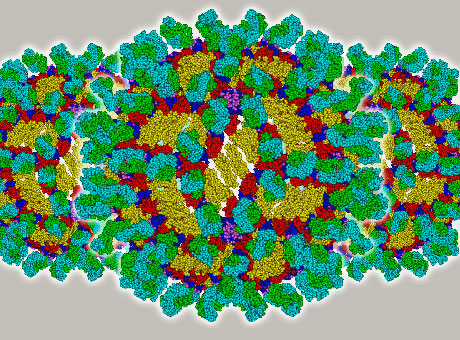
Researchers are investigating how humans respond to potentially lethal viruses such as West Nile, modeled above.

Researchers are investigating how humans respond to potentially lethal viruses such as West Nile, modeled above.
Washington University has broad research focused on the viral causes of infectious disease.
Stephen Beverley, PhD, is researching viruses that make parasitic diseases more dangerous. In doing so, Beverley, the Marvin A. Brennecke Professor and chairman of the molecular microbiology department, is forging a pathway in his field, which he calls “parasite virology.”
In 2011, Beverley’s team, working with scientists at the University of Lausanne in Switzerland, found that a particular virus increased the severity of a parasitic disease called Leishmaniasis.
About 12 million people are infected worldwide with this potentially lethal disease, and 2 million new cases develop each year.
“The fact that there was a viral target within the Leishmania parasite immediately led us to thinking that an antiviral therapy could control the spread and impact of the disease,” Beverley said. “We’re now exploring several leads in this area.”
Michael Diamond, MD, PhD, professor of medicine and an expert on West Nile virus, is part of a new multi-institution collaboration looking for similarities in how humans respond to three potentially lethal viruses.
The National Institutes of Health (NIH) study will focus on West Nile, Ebola and influenza, using advanced computational models to find common traits. Diamond expects that finding similarities could lead to new, more effective treatments.
David Wang, PhD, associate professor of molecular microbiology and pathology and immunology, was part of an important team in 2003 that successfully hunted down the severe acute respiratory syndrome (SARS) virus.
Emerging viruses pose constant threats to public health. Today, Wang continues efforts to identify and characterize novel viruses.
His current research attempts to understand why 70 percent of viral encephalitis cases and 30 percent of respiratory tract infections defy the most sophisticated diagnostic tests now used — suggesting that unknown agents likely are involved in the pathogenesis of these diseases.
Philanthropy plays a vital role in funding fellowships and research opportunities. Support from donors is critical to our continued leadership in infectious diseases.